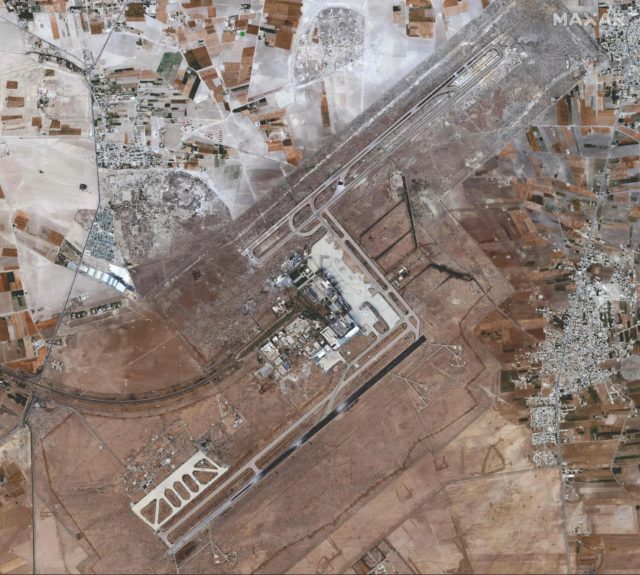The civilian part of Damascus airport took a big hit last week. The Syrian government said there were no deaths, but “significant” damage was done to its infrastructure. According to the Associated Press, “Israel marked a major escalation in Syria … as [it] steps up efforts to stop Iranian weapons shipments to Hezbollah.”
As is so often the case, AP has it wrong. Iran marked a major escalation in Syria by using the civilian runways of an international airport for the delivery of weapons, which have included precision-guided missiles, to its terrorist proxy, Hezbollah.
Consider: The Arab League, the Gulf Cooperation Council and countries from Japan to Guatemala to Colombia to Australia and Switzerland consider Hezbollah in its entirety to be a terror organization. The European Union makes a distinction between the “political” and “political” wings. (See: “Chickens have wings; terror organizations have partners”). But some E.U. members, including the Netherlands, Austria, the Czech Republic and Slovenia, joined by Germany in 2020, have their own total designation. Russia, Algeria, Iran, Cuba, North Korea, Syria and Venezuela claim to have no problem with Hezbollah. China calls itself “neutral.”
Hezbollah, in full political and military control of Lebanon—forget about the U.S.-armed and trained Lebanese Armed Forces (LAF)—openly threatens to destroy Israel and is creating the Iranian-provided arsenal to do it. Hezbollah also runs gun, drug and money-laundering operations across the Middle East and South America, and was responsible for the Beirut Marine Barracks bombing that killed 251 American military personnel.
Why would anyone want Hezbollah to have weapons, and why shouldn’t everyone applaud Israel’s determination to stop Iran?
Israel, as is its custom, did not comment on the latest raid. So, AP found a Syrian to tell it what Israel had in mind. Israel, said Ibrahim Hamidi of London-based Asharq Al-Awsat, “won’t let Iran fill the vacuum [left by] Russia in Syrian while it is busy with Ukraine.” Hamidi may be partially, but only partially, right.
Israel stayed out of the horrific, seven-year Syrian civil war (with the exception of providing humanitarian aid at the Golan Heights border) but has long had and maintained three red lines:
- No Iranian or Hezbollah bases near the Israeli border; revised to no Iran in Syria.
- No weapons delivered by Iran to Hezbollah that Israel considers “situation-changing.”
- No use of non-conventional weapons.
Israel’s military activities in Syria and Lebanon have been done under a deconfliction arrangement with Moscow that protects Russian air and naval bases in Syria. But there has been an escalation of Iranian weapons to and through Syria and Lebanon since U.N. restrictions on supplies of “all major arms to and all arms from Iran,” imposed in 2006 and 2007, expired in October 2020.
And in late 2021, there was a major bombing at the Syrian port of Latakia—within shouting distance of the Russian base—that appeared aimed at Iranian capabilities there:
In 2019, it was reported that Iran was operating a precision missile factory on the outskirts of Latakia. That same year, Iran leased part of the port, and, according to Israeli sources, has used the facility to supply weapons to both Syrian forces and to Hezbollah in Lebanon. According to an Iran analyst at the time, the deal was done bilaterally (Iran-Syria), and Russia was not happy about being cut out. In October 2020, it was reported that Syria was still trying to import the components of chemical weapons.
Again, as is its custom, the Israel Defense Forces said nothing about the Latakia bombing. But according to a contemporaneous Jerusalem Post report, the raid destroyed “an immeasurable amount of advanced and strategic weaponry” sitting in the port because, owing to Israel’s activity, “Iran’s air, land and sea corridors didn’t function for 70 percent of 2021.”
In 2022, Russia’s attention focused elsewhere: in Ukraine.
There appears to be an overlap between Russia’s tactical interests and Israel’s strategic ones. Fine. But make no mistake, Iran has plans for the region that include the continued subjugation of Syria and Lebanon, as well as of Iraq. And Israel will do its best to prevent that regardless of Russian distraction or Iranian escalation.






